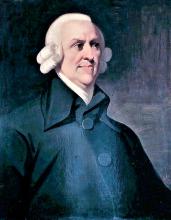Adam Smith

Adam Smith (16 June 1723 – 17 July 1790) was a Scottish economist, philosopher and author. Also known as ''The Father of Economics'' or ''The Father of Capitalism", Smith wrote two classic works, The Theory of Moral Sentiments (1759) and An Inquiry into the Nature and Causes of the Wealth of Nations (1776). The Wealth of Nations, is considered his magnum opus and the first modern work of economics.

